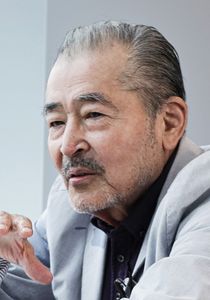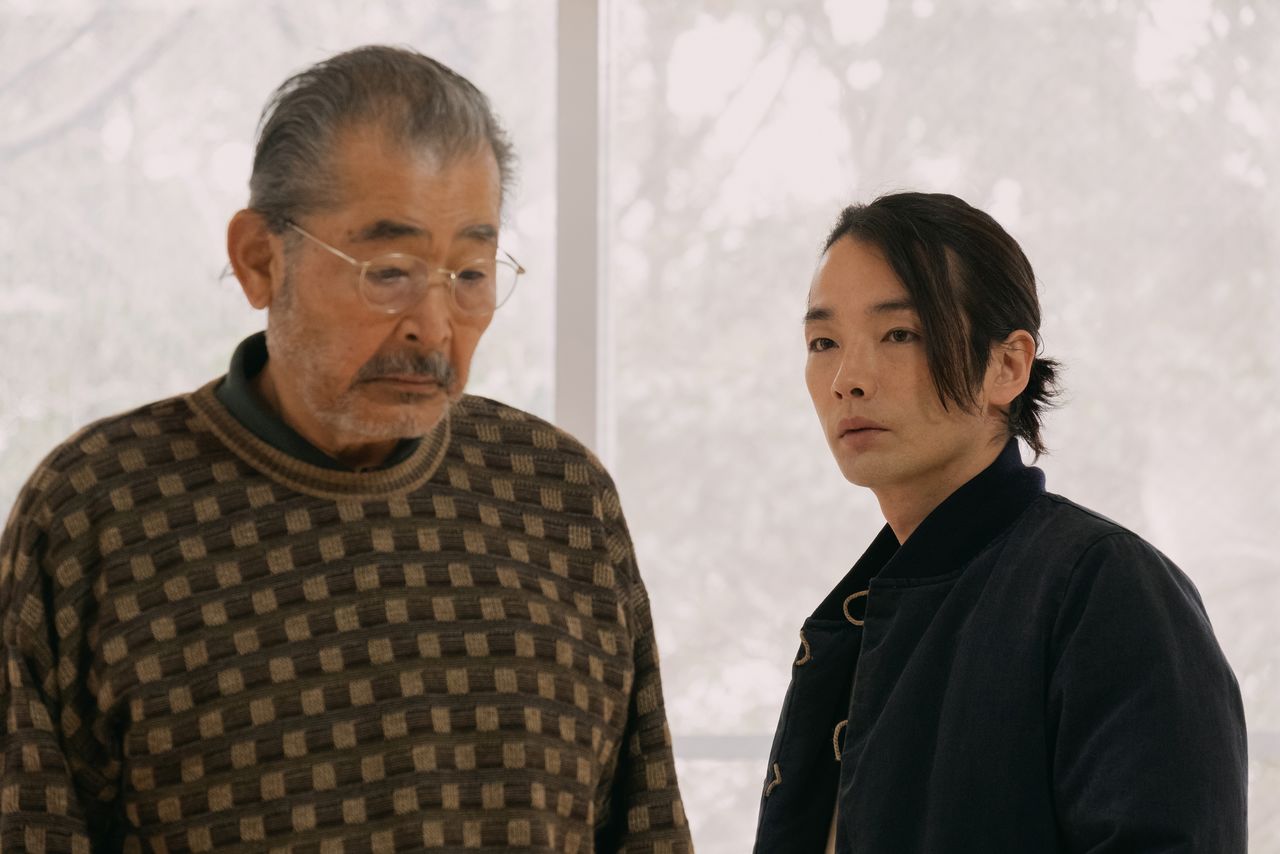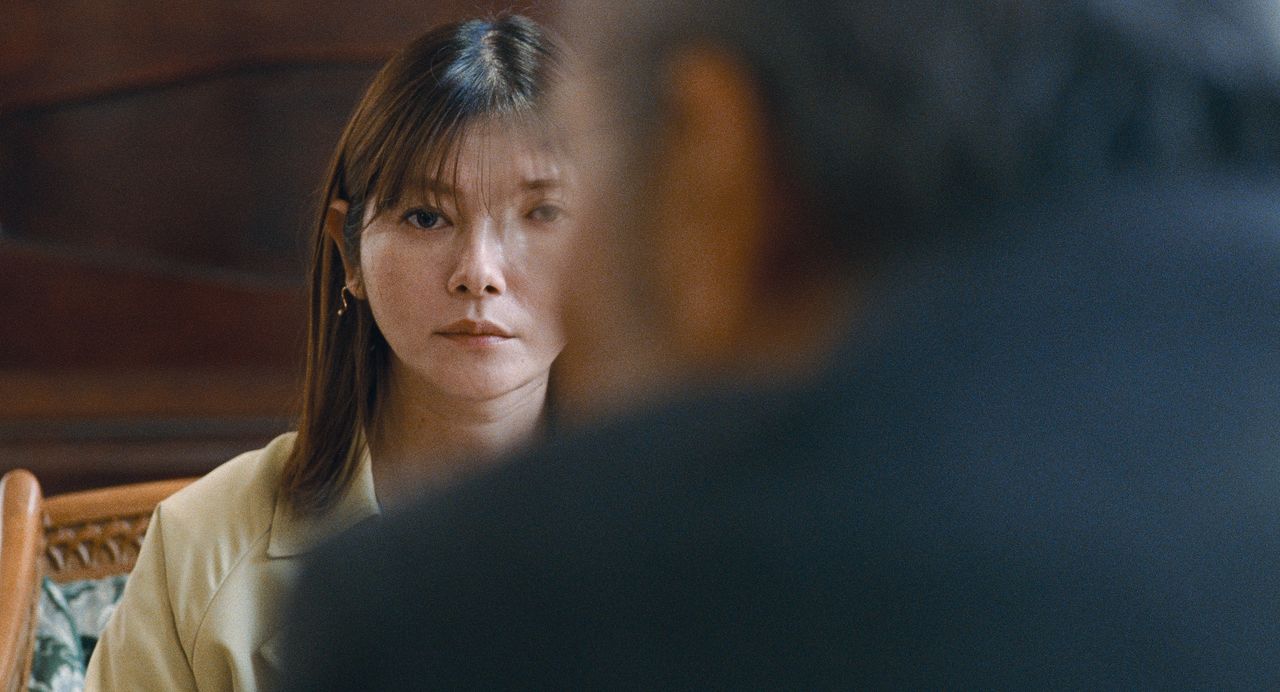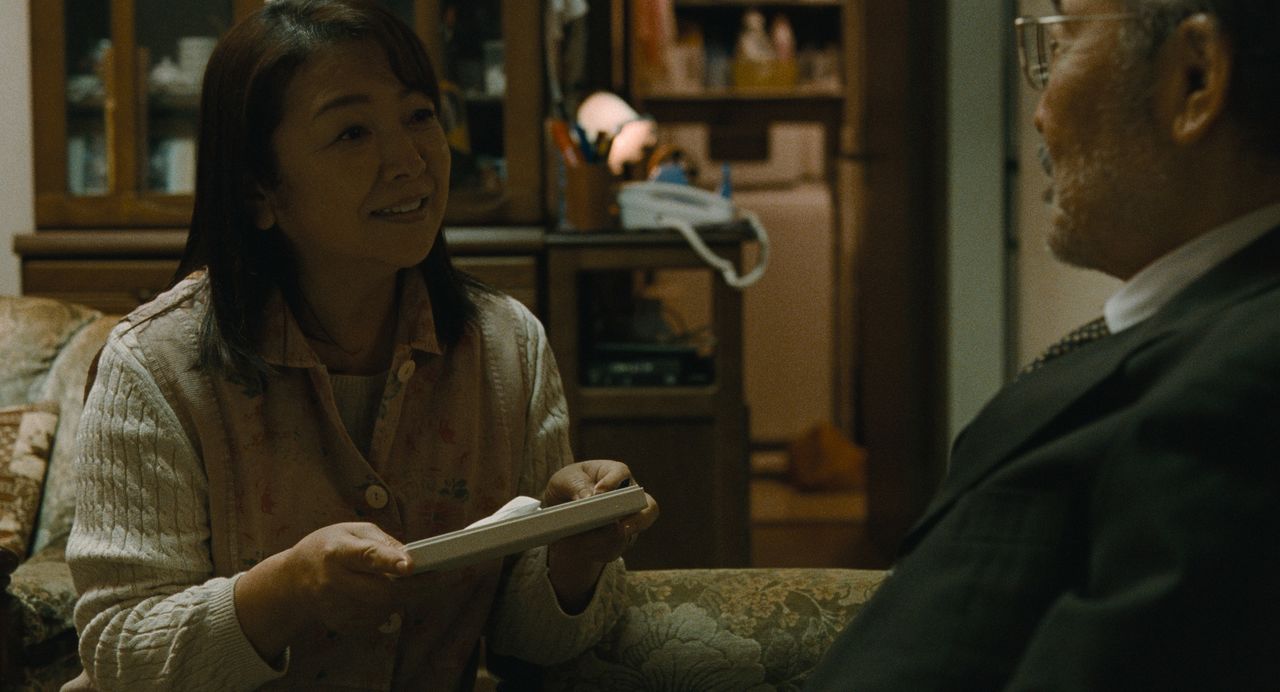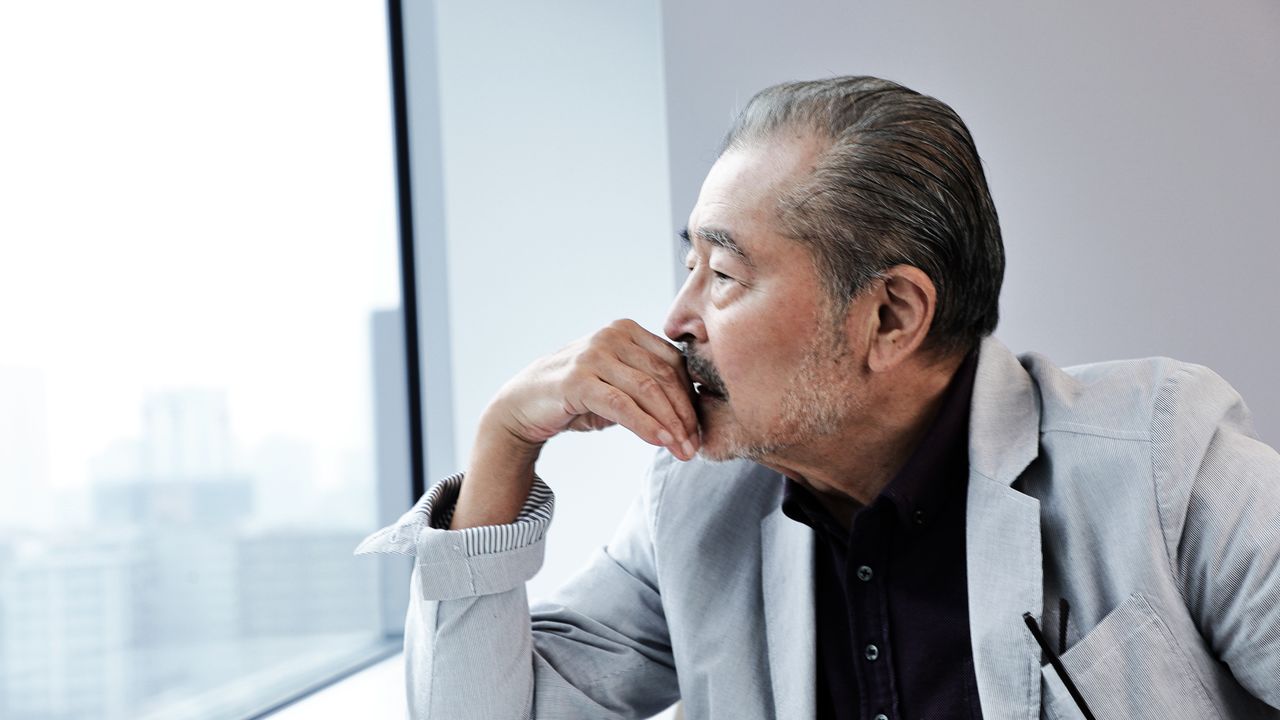
“Great Absence”: Fuji Tatsuya’s Award-Winning Performances a Way to Avoid Losing Himself
Cinema Culture- English
- 日本語
- 简体字
- 繁體字
- Français
- Español
- العربية
- Русский
Careful Decisions on Which Roles to Take
Despite being over 80 years old, Fuji Tatsuya remains a vital presence in the Japanese cinematic scene. He continues to appear in prominent roles, both as a starring and a supporting actor. The 2023 Great Absence represents the second feature film and third collaboration between Fuji and director Chikaura Kei.
Chikaura had previously cast Fuji in the 2013 Empty House, a short film that launched his career as a director. The two teamed up again in Complicity (2018), a full-length feature film. For Chikaura, there was little hesitation to offer Fuji another key role.
Fuji, on the other hand, says that he does not decide on the films he works on based on the director or prior working relationships. The actor admits that this can seem cold-hearted. No matter how many times he works with someone, he waits until he knows everything about the film, and even then reads the script with a strict eye to see if it is a work he really wants to be involved with.
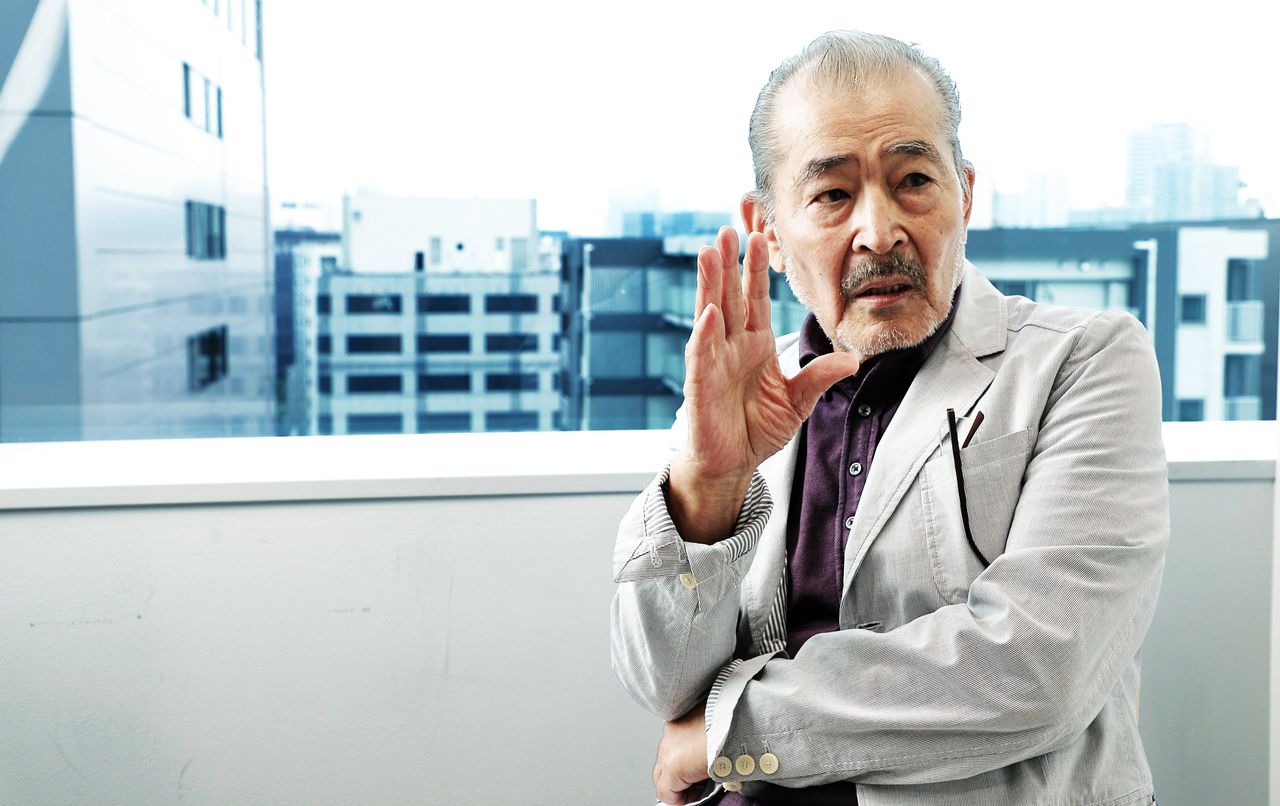
Fuji Tatsuya. (© 2023 Hanai Tomoko)
Nevertheless, Fuji committed to work with Chikaura for a third time on Great Absence. “There are so many aspects to life—the beautiful, the sad, the joyful. It’s really hard to do it all in one film. One is always forced to focus on certain elements in a film to the exclusion of others. With Chikaura’s script, however, no matter which part of the story you single out, it showed a sensitivity to the nature of humanity. This is not a happy story. It is, in fact, a story about losing one’s identity, a cruel part of life for many human beings. This film does not neglect the human element and complexity of the characters.”
In Great Absence, Fuji plays Yōji, the father of the protagonist Takashi (Moriyama Mirai), whom he abandoned when Takashi was only a child.
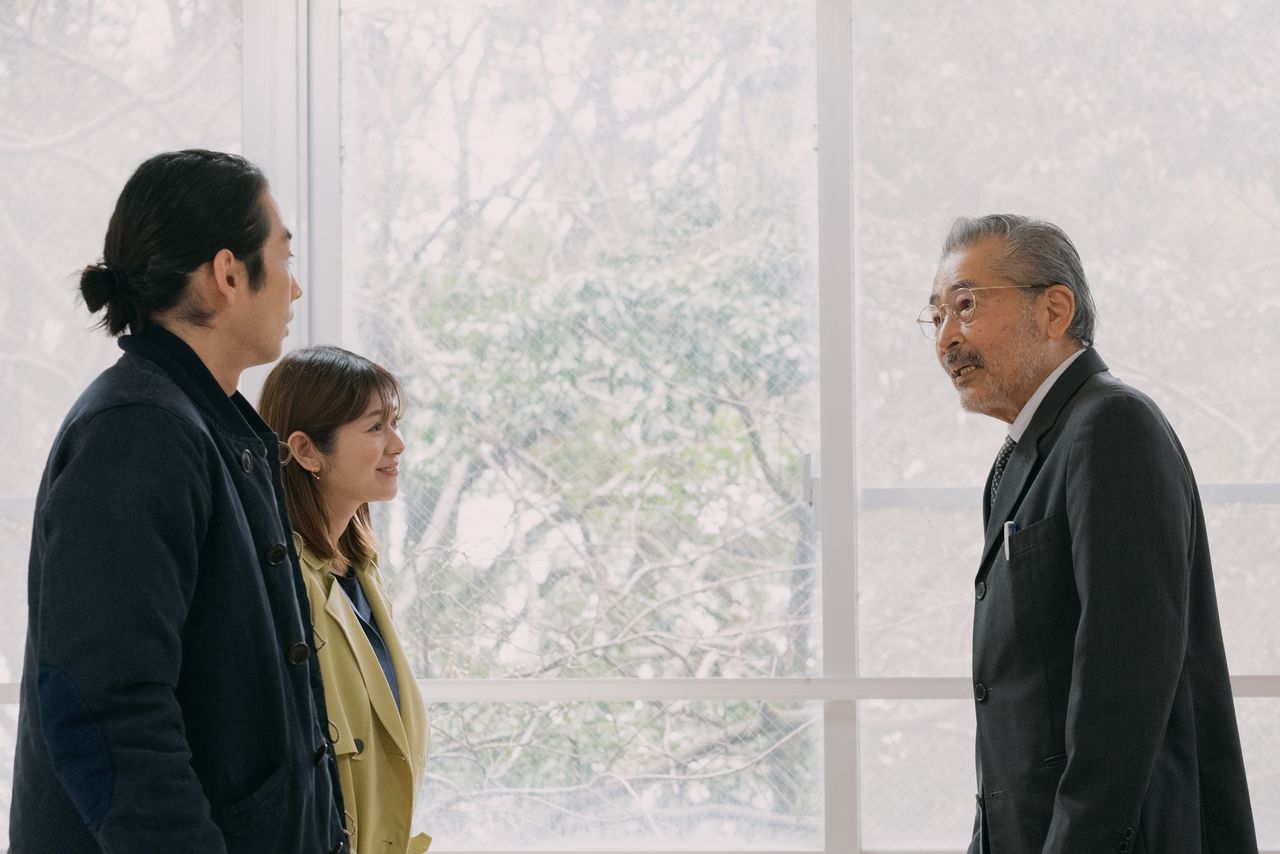
Takashi (Moriyama Mirai) is reunited with his father Yōji (Fuji Tatsuya) after a long absence. Next to Takashi is his wife, Yuki (Maki Yōko) (© 2023 Creatps)
One day, Takashi suddenly receives a call from the police informing him that his father has been arrested for a crime. Takashi visits his estranged father for the first time in decades. Apprehensive, he is met by a still spirited elderly man who rambles incoherently.
He also discovers that his father’s second wife, Naomi (Hara Hideko), has disappeared. What has happened to the couple in the intervening years? This provides the impetus for Takashi to try to piece together the events of his father’s life since their estrangement. Takashi not only speaks to those who knew his father, but he also scours through the letters and extensive notes left at his father’s house.
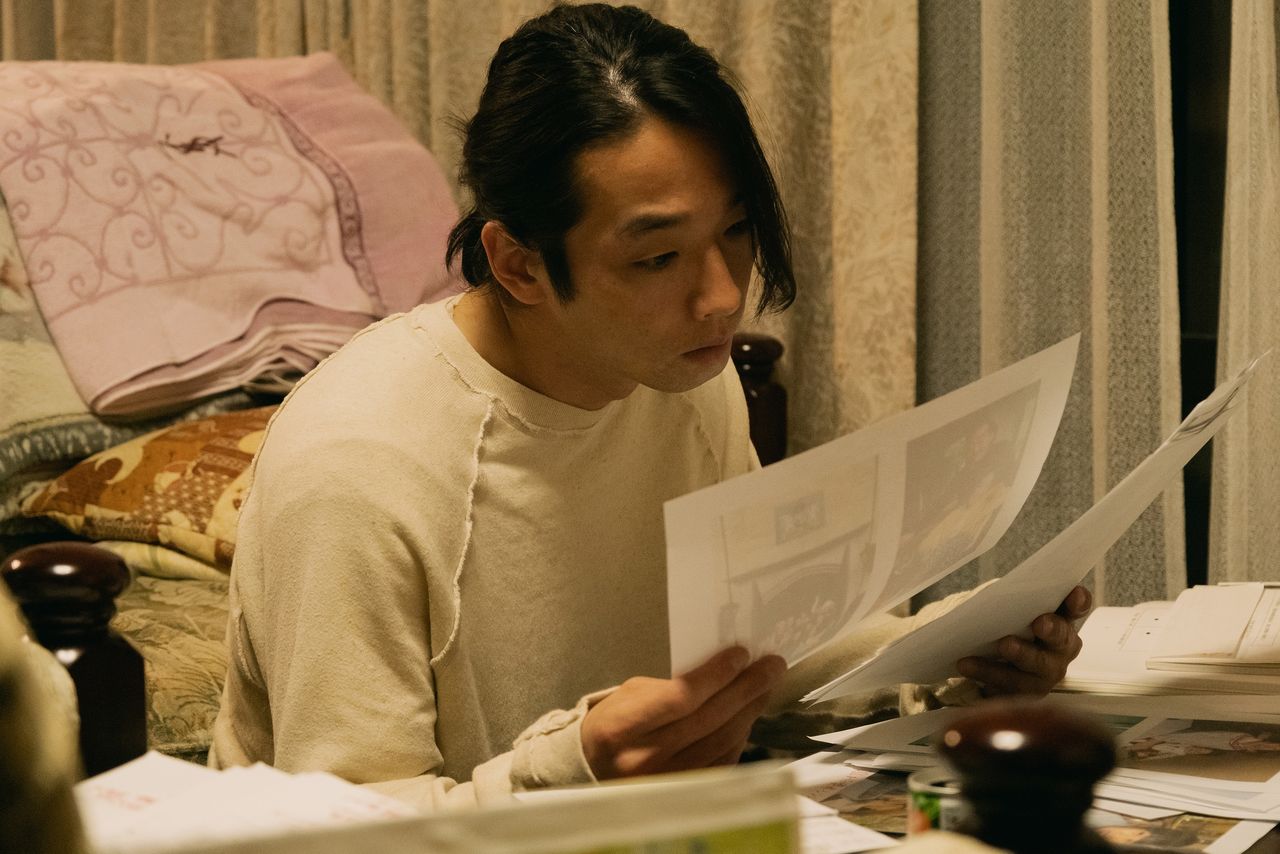
Takashi takes a journey into his father’s past through the notes, letters, and photographs left at his father’s home. (© 2023 Creatps)
The Art of Getting to Grips with a Role
Fuji was immediately drawn to the film and gave it his all, but during filming he admits that he found it hard to imagine what kind of film it would turn out to be and was anxious about how it would be perceived by the public.
“The film depicts a sad relationship between father and son,” he explains. “It provides a bird’s-eye view of the father’s egoistic and sometimes ugly ageing process. During filming, I appreciated how this reflected the trials of growing old, but I struggled to see the mechanism for moving the audience emotionally. When I saw the finished product, however, it moved me in a way that I couldn’t imagine. It also made me realize that I still don’t really know how to read scripts.”
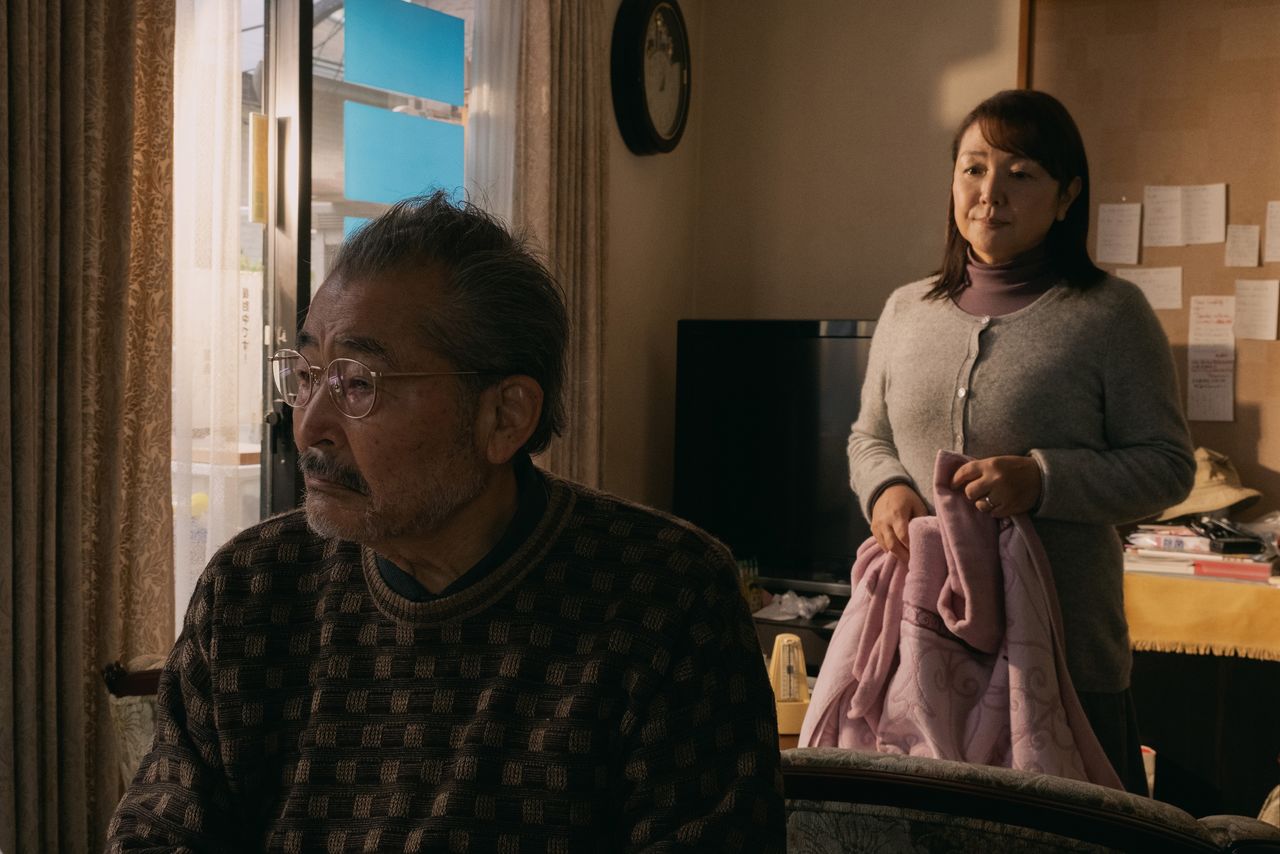
Naomi, Yōji’s second wife, is played by Hara Hideko. This is the first time Fuji and Hara have acted together in almost 40 years, since their first film together, P. P. Rider (1983). (© 2023 Creatps)
In the process of getting to grips with a role, Fuji says that he “sometimes profiles the character like a detective.” This time, however, he was able to quickly connect with Yōji’s character without going through the usual process.
Fuji notes that Chikaura borrowed some elements of Yōji from the his own father, who was a university professor and also suffered from dementia. Beyond that, Fuji says he does not really know how much of the character is based on real experiences and how much is fictional. “It doesn’t really matter to me. I assume that everything is a true story,” he laughs.
The Silent Communication of Skilled Actors
Fuji also discusses how, once on location, he and his co-stars “never exchange a word about the production.”.
“We all just work, you know. We don’t chat. As professional actors, we have all sorts of conversations with each other from the moment the bell rings, so to speak. Even if we don’t have lines, we communicate silently by methods such as using eye movements and breathing.”
During the interview, I felt what he meant. Although I am not an actor, I was surprised to find that Fuji’s eyes and mannerisms communicated “something beyond words.” I asked Fuji if this was the “spirit” that the actors silently exchanged on set.
“Yes, yes. That’s right. We don’t need words most of the time.”
Admiration for Those Who Take On the World
“I don’t like to use phrases like ‘getting old’ or ‘over the hill’ myself. It’s boring, isn’t it?” laughs Fuji.
But he sometimes thinks that he really is a “person from an older time.” As someone who has devoted himself solely to acting, Fuji sees Chikaura almost like Ōtani Shōhei when he just joined Major League Baseball. He is someone who handles all the work, including the fundraising involved in exporting his films overseas, confident that he can go toe-to-toe with the best in the world.
Fuji believes the same can be said for Moriyama Mirai: “He is an actor and a professional dancer and likewise is committed to making his mark globally from Japan.” Fuji then says, “I am pleased that after the interview Nippon.com is going to translate this article into multiple languages. This kind of thing really makes me think I am making a contribution, even in this new era”.
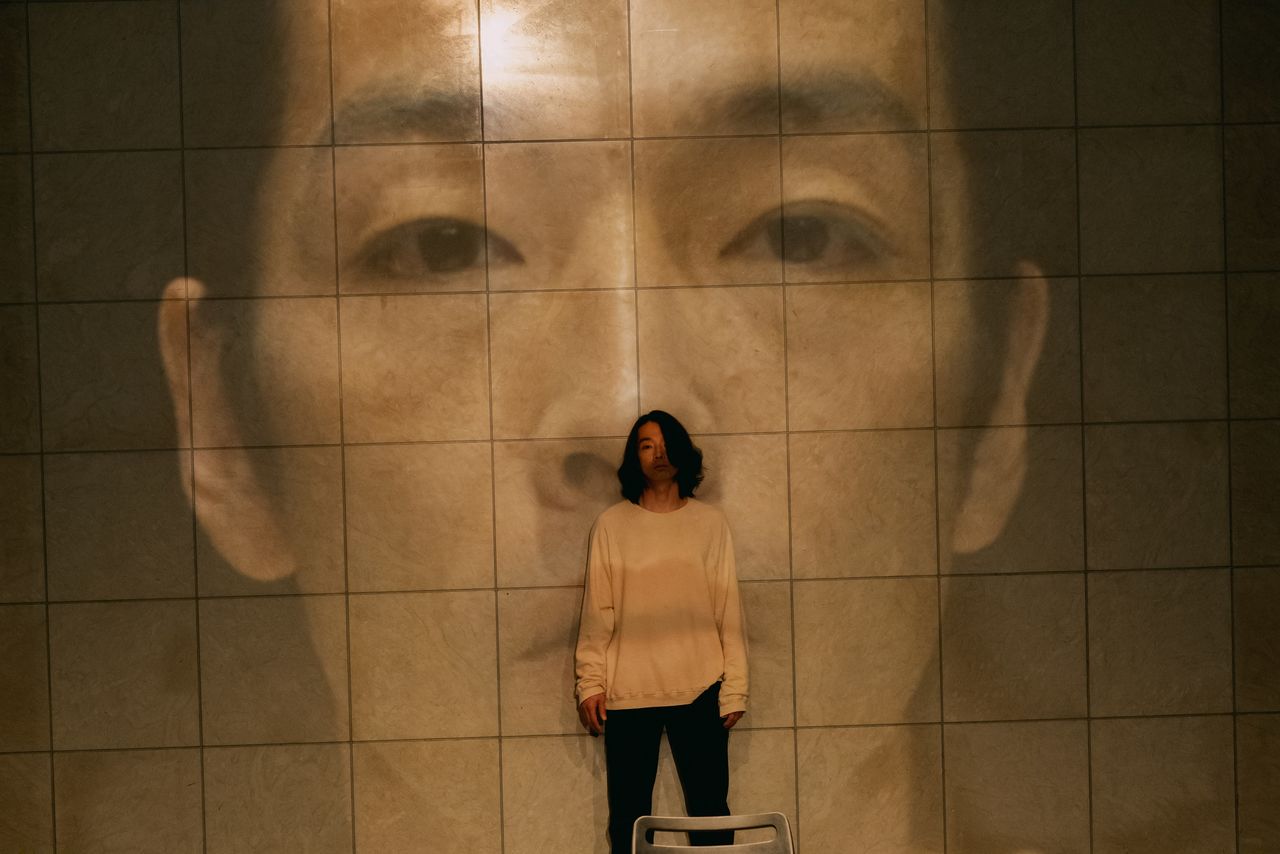
Takashi is played by Moriyama Mirai, positioned as an actor with experience including NHK’s famous taiga dramas. (© 2023 Creatps)
I suggest to Fuji that he was once not so different, himself. Fuji, after all, started off in a similar fashion as a pioneer who caused a stir and made his mark globally in the 1970s by starring in Ōshima Nagisa’s In the Realm of the Senses.
He replies, “At that time, yes, I guess that was the case. I first went to the Cannes Film Festival almost half a century ago. I remember seeing Ōshima walking around Cannes wearing a costume designed by the famous art director and set designer Toda Shigemasa. He did this while holding a large sensu, a Japanese hand fan.” Fuji likens Ōshima’s presence at Cannes to the old Japanese swordsmen who used to parade around with the phrase tenka musō (天下無双) emblazoned on a flag—essentially an unapologetic boast that they had “no peers in the world.”
“That is how Ōshima led the way. He had a truly amazing spirit.”
“Acting Keeps Me Going”
Great Absence opens with a thrilling scene where armed police are about to raid a house. Then the timelines switches, moving back and forth between past and present as the mystery of what happened is slowly unveiled. The story unfolds from clues provided from the diary of Yōji’s second wife that Takashi found in his father’s bag. Together with letters written by the young Yōji that were carefully pasted into the diary, Takashi is able to piece together the events of his father’s second life even though he had not been a part of it.
Fuji, on the other hand, believes himself to be quite “unsentimental” as a person: “I am not the type of person who clings to the past.” He says he tears up scripts after every shoot and he does not keep photos from his younger days.
“In foreign films, there are sometimes scenes where an old star has built a mini theater in his house and is watching classic films he starred in. For me,”he laughs, “I wouldn’t like that at all.”
Indeed, Fuji does not even look in the mirror. He shares an episode from a time when he was the poster model for a cigarette company.
“I was on a bullet train bound for Osaka, and I was seated at the front of the train. My poster was right in my face for basically three hours, and I got really sick and tired of seeing myself. I felt like I was sitting in a very uncomfortable seat the whole time.”
Seeing Yōji in Great Absence reminded me of an essay by Fuji that I once read. In this essay, Fuji recounts how his son was going through a rebellious stage and was disrespecting his own mother. Fuji’s temper boils over and he snaps at his son, “Hey! Before she was ever your mother, she was my woman!”
When I repeat this story back to Fuji, he tells me about how his relationship with his wife, the actress Ashikawa Izumi, shaped his determination to succeed.
“When I got married, my wife was a leading star at Nikkatsu. I, on the other hand, was basically a nobody. This weighed on me, and I made sure that I did everything I possibly could to become an actor. I was so worried that people would look at us and say ‘Look at what she did! She married that total nobody.’ I couldn’t accept that.”
Fuji says the secret to his long career is “fate, luck and health.” Even though he does not cling to the past, he never forgets his origin and is constantly updating himself. This has helped him to stay fresh into his eighties.
“In my case, I’m being kept alive by acting and performing. If I didn’t do anything, I’d lose my identity and become just a shadow of myself.”
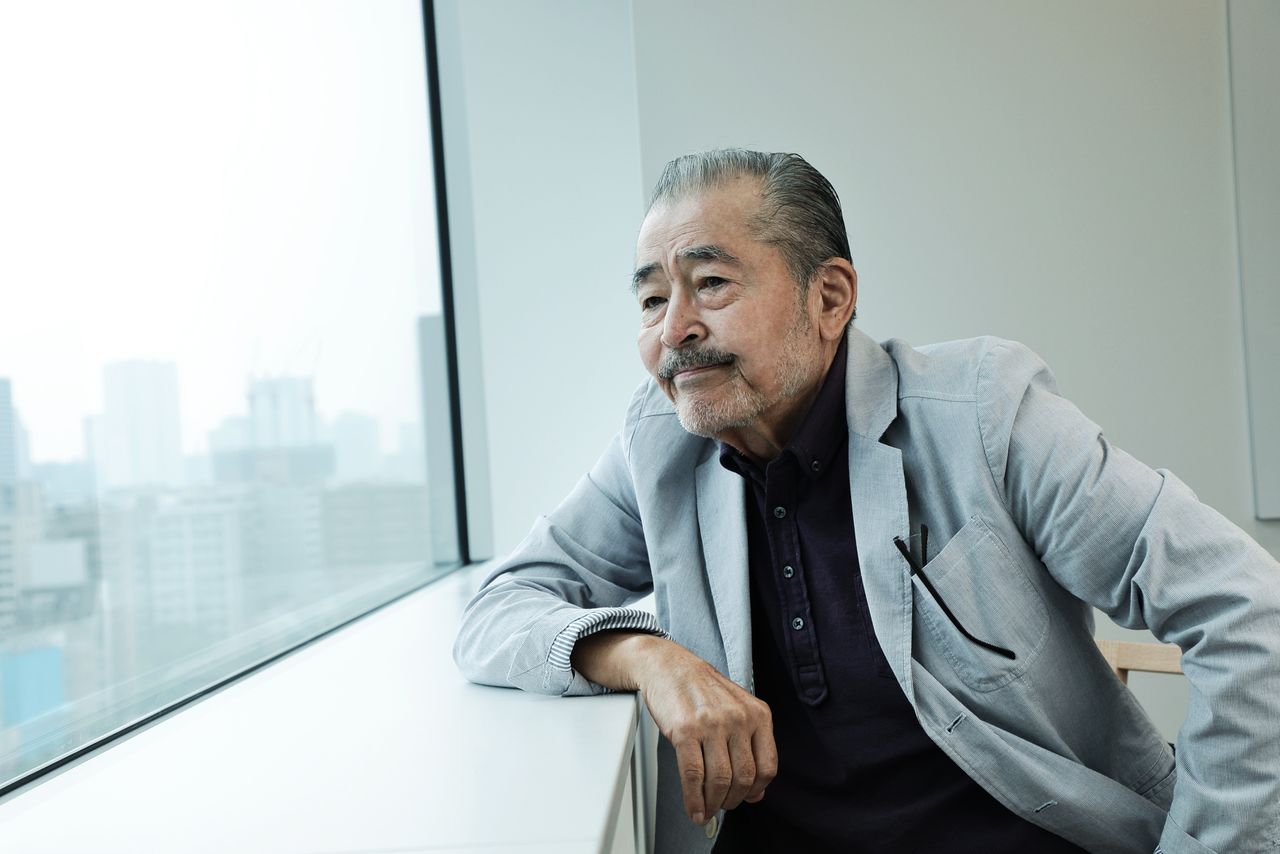
Fuji Tatsuya. (© Hanai Tomoko)
Film Information
Official Site: https://great-absence.com/
Trailer
(Originally published in Japanese. Research and writing by Watanabe Reiko. Banner photo © Hanai Tomoko.)

